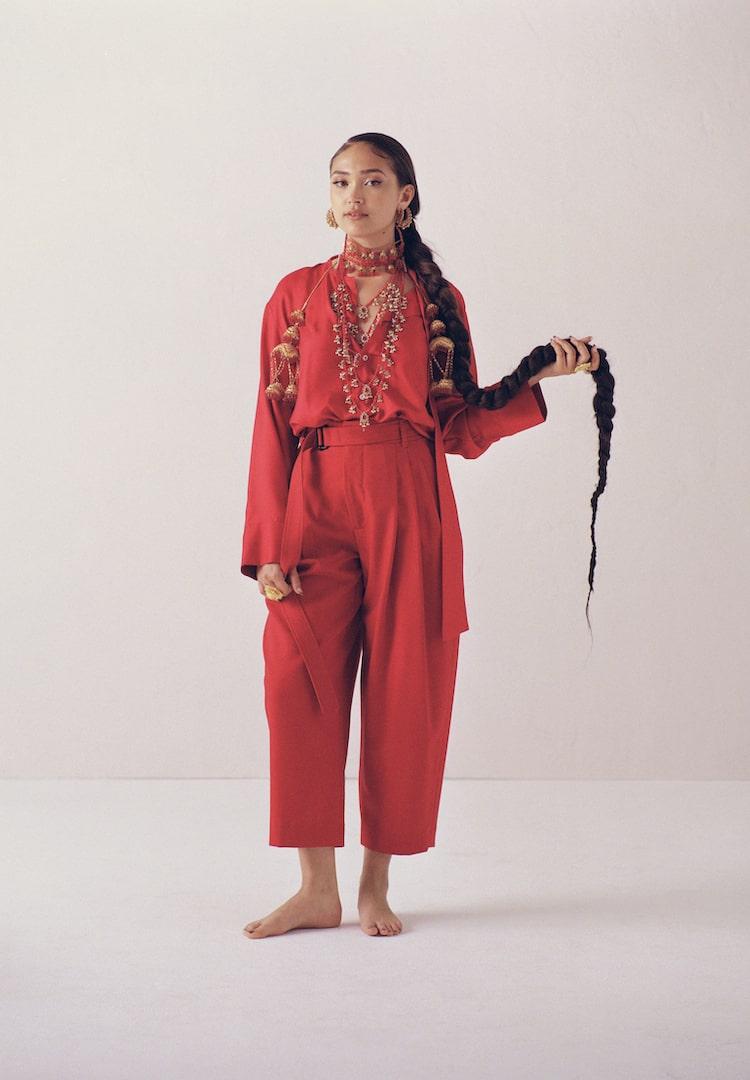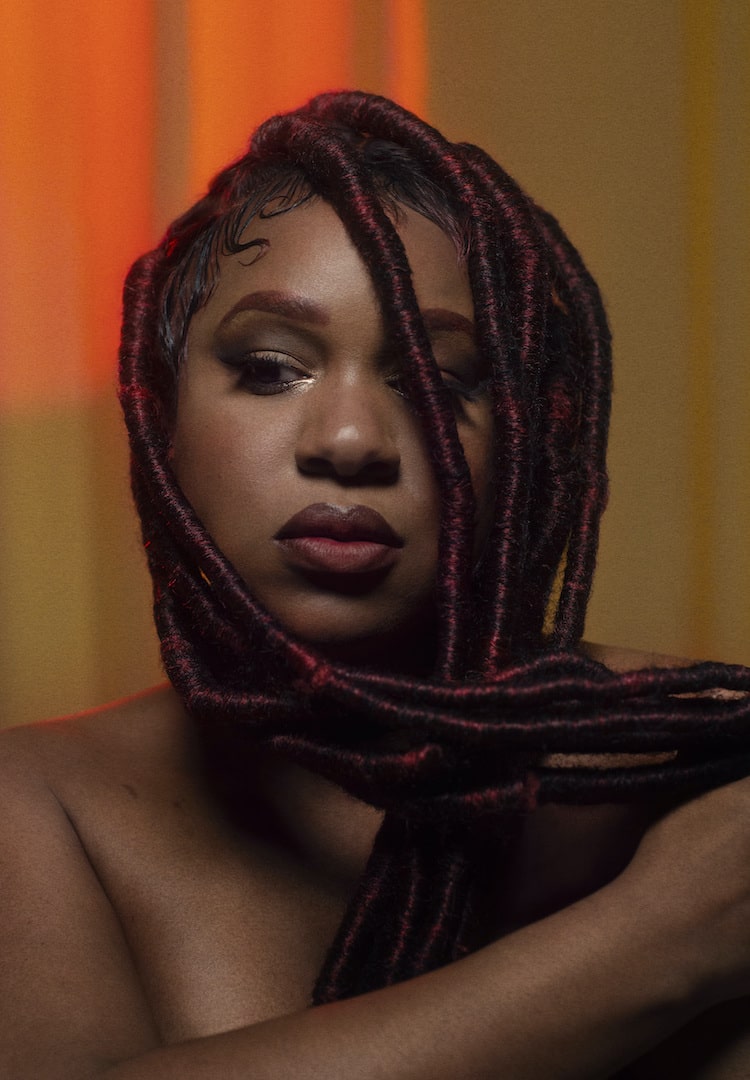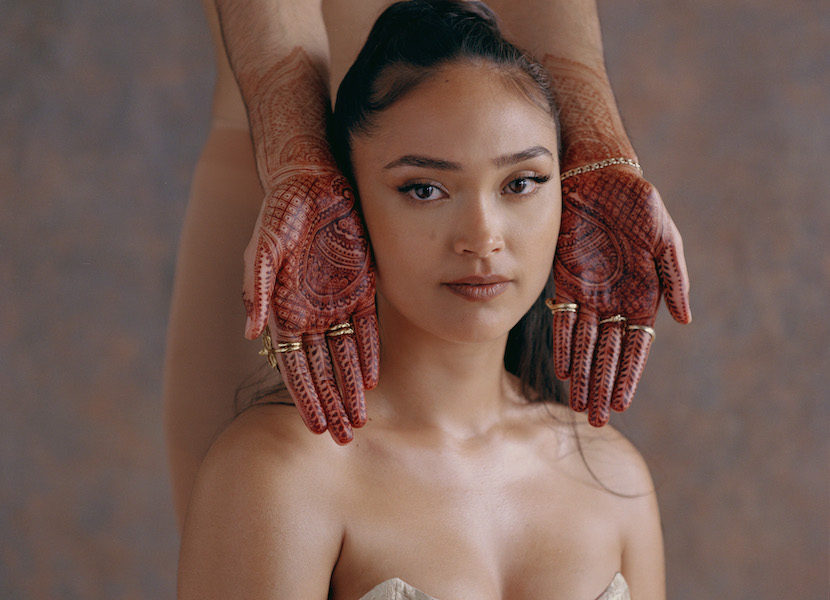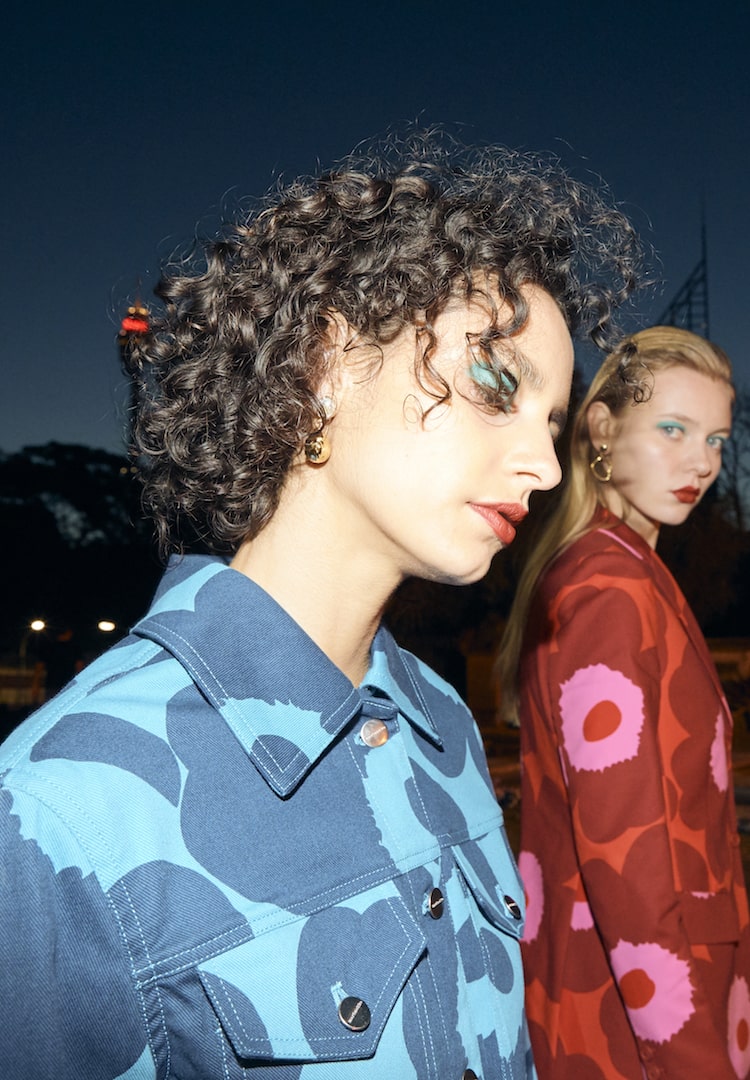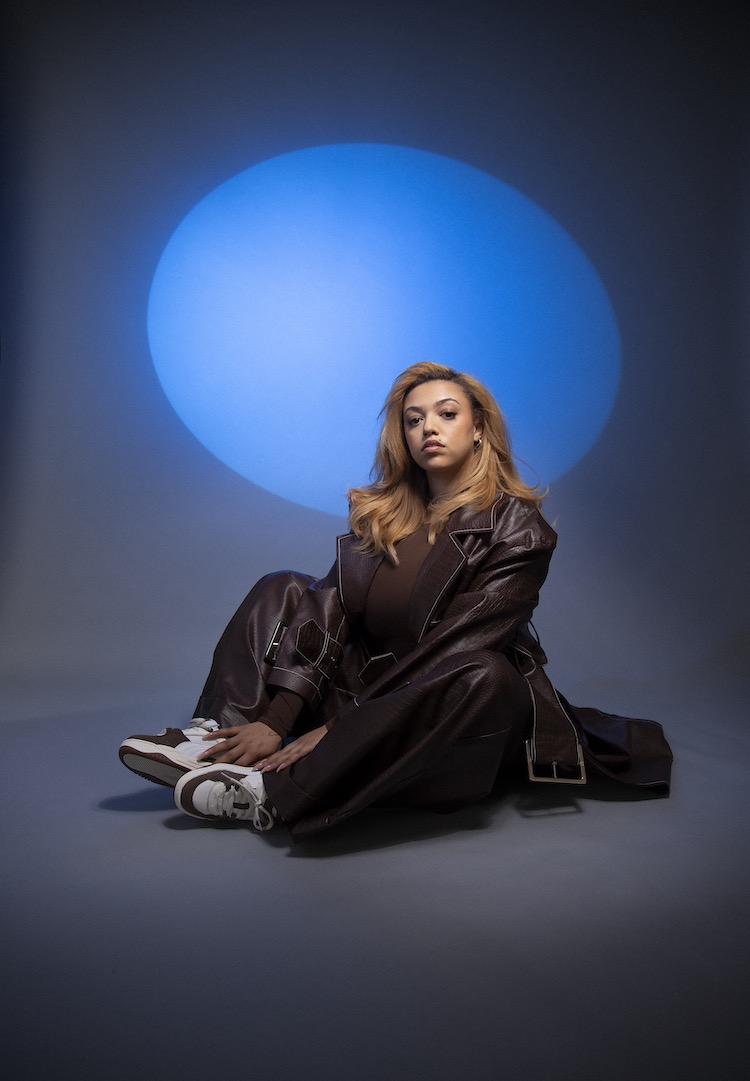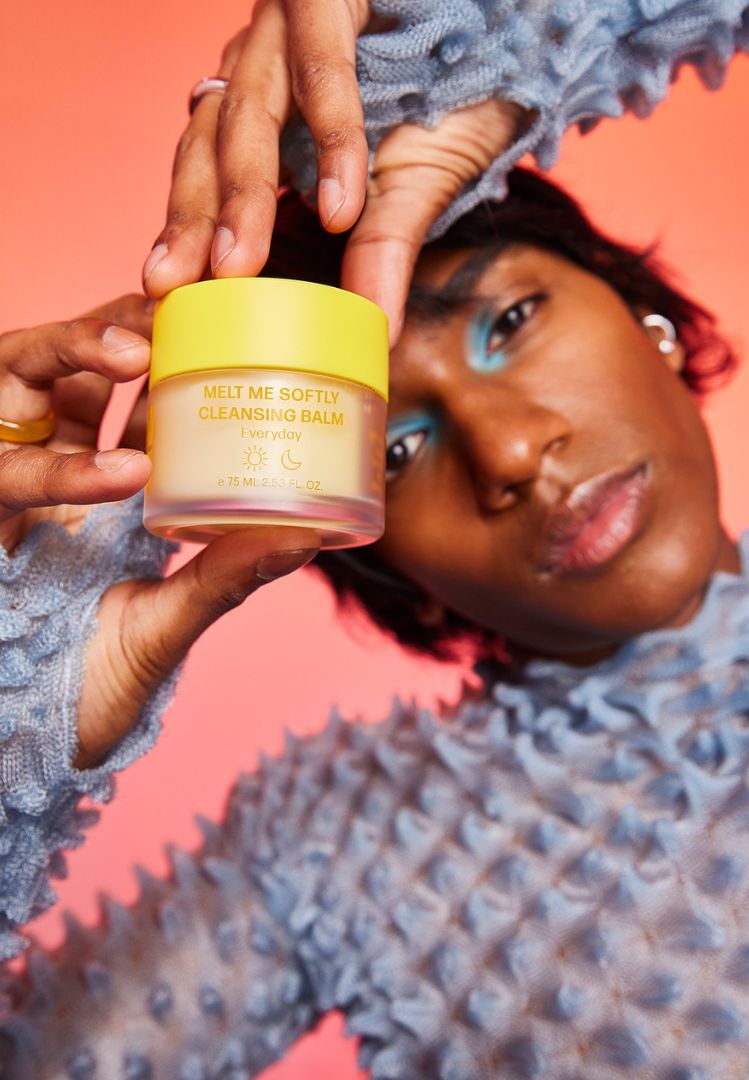From casual sex to mental health, Joy Crookes’ music maps young womanhood
Photography by Carlota Guerrero
Words by Kate Streader
IN PARTNERSHIP WITH SONY MUSIC
Her debut album Skin tackles identity, politics and her own experience of growing up.
South London-based Bangladeshi-Irish artist Joy Crookes began writing songs at the age of 12. After being diagnosed with depression at a young age, she turned to music as a means of expression and making sense of the world.
At 14, Crookes discovered the music of Black female jazz artists including Ella Fitzgerald, Nina Simone and Sarah Vaughn “and it was like something tore inside of me”. The power of their lyrics and the fire in their voices cemented Crookes’ will to make meaningful music drawing from her own experiences as a young South East Asian woman from working-class South London.
Get better acquainted with the best new artists at our Music section.
Now 22, Crookes has spent much of her early twenties in a period of deep introspection due to the pandemic, culminating in her debut album, Skin. “Instead of navigating emotions by taking them out outside, taking them out on drink or partying or distraction, so to speak, we had to actually sit with our thoughts,” she said of the past two years.
Crookes’ pandemic self-care routines of journaling and spending hours at the piano each day doubled as practices that bolstered her songwriting and helped her refine Skin. And while the record came together amidst the isolation of lockdown, its 13 tracks are whittled from writings penned across Crookes’ adolescent years, mapping young womanhood and the myriad obstacles and experiences it poses, especially for a woman of colour.
At its core, Skin is an exploration of identity; from how our largest organ dictates so much of how the person it encases is perceived and treated in society to private, inner struggles with mental health and how we fit into the world around us.
“The word skin massively resonates with me as biologically it is one of the strongest parts of our bodies, however socially and externally it is often used against us. This juxtaposition is grappled with throughout the album,” said Crookes.
As well as ruminating on her own identity, Skin sees Crookes setting her sights outwardly as she ponders politics, abuses of power and generational trauma, as well as comparatively lighter subject matter like breakups, family, the performative nature of social media and casual sex.
Laying herself bare in every sense, the album artwork – shot by Carlota Guerrero, the photographer behind Solange’s striking A Seat At The Table cover – shows Crookes naked, vulnerable and exposed. Still, she looks powerful; her chest covered by an armour-like plate that embraces her feminine body rather than attempting to hide it.
Guerrero isn’t the only big name that helped Skin come together, either. Producer Blue May, who has worked with everyone from Banoffee and Jagwar Ma to Blood Orange, helped Crookes sculpt the record through a collaborative process, bringing her vision to fruition.
“I sat across the whole production process and I’m proud to say I’ve been credited with Blue as a co-executive producer,” she said. Sonically, the record draws from an eclectic mix of influences. With classic soul serving as a foundation for Crookes’ sound, Skin nods to contemporary artists ranging from Solange to D’Angelo and Moses Sumney.
Mirroring the journey of coming of age, as well as reflecting its varied influences, Skin bounces from pulsing club beats to piano ballads, incorporating everything from a brass band to an 18-piece string section, showcasing Crookes’ dexterity as an artist.
“London is in the DNA of this album,” said Crookes, who recorded pieces of the record in the renowned Abbey Road Studios, Konk Studios, a home studio and even a random hotel room.
Always one to find inspiration in her environment, she wanted to capture London as she sees it – or, at least, the London she grew up in before it became increasingly gentrified and pushed out working-class people and immigrants.
Like skin itself, the album bears the marks of growing up. There are wounds that have healed into scars, blemishes, flaws and the soft creases that come with laughter and a life well-lived.
“Out of all the songs I have ever written I think ‘Skin’ is the most important to me,” said Crookes. “It exists for anyone who needs reassurance and hope. Mental health is something everyone has to deal with to varying degrees, and in particular, the last 18 months have taken their toll.
“I wrote this song for a loved one last year who was at a stage where he thought his life was no longer worth living. I hope the song offers something to everyone battling with their demons and the people around them who are supporting them.”
Get better acquainted with the joy that is Joy Crookes’ music here.


